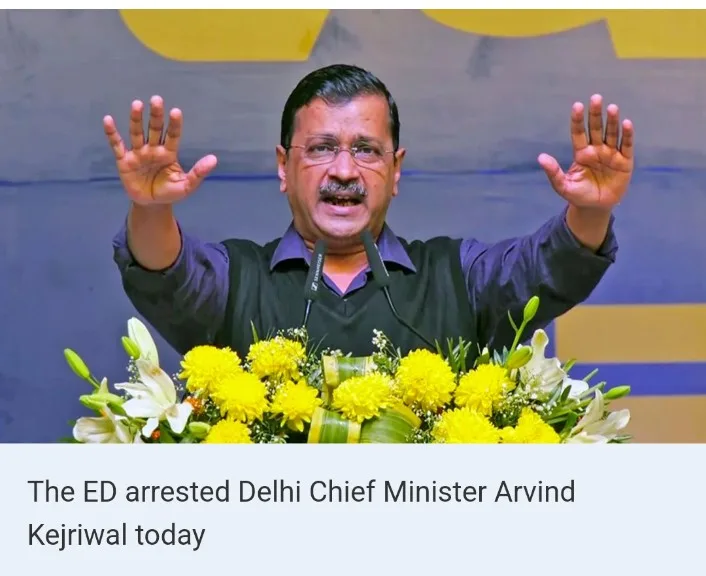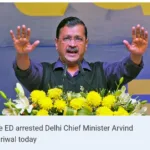In a historic development, Delhi Chief Minister Arvind Kejriwal has been arrested by the Enforcement Directorate (ED) in connection with the ongoing liquor policy case. Refusing to comply with multiple summons from the central agency, Kejriwal faced a 12-member team from the ED at his official residence before being taken into custody. This marks the first instance of a sitting Chief Minister being arrested in independent India’s history. Despite the arrest, Kejriwal’s party affirms his continuation in office.
The ED’s action follows the Delhi High Court’s denial of protection from arrest to Kejriwal earlier in the day. The Chief Minister had contested the legality of the ED’s summons, dismissing them as unlawful. The summons had been issued to him on multiple occasions, with Kejriwal consistently refusing to oblige.
In response to the arrest, political reactions poured in, with various parties expressing their opinions. Congress leader Priyanka Gandhi Vadra condemned the move, labeling it as unconstitutional and an attempt to subvert democracy. Meanwhile, the Delhi Police mobilized forces to manage the growing protests outside Kejriwal’s residence.
Kejriwal’s arrest not only signals a significant turn in the liquor policy case but also ignites political tensions as the electoral season unfolds. The AAP asserts its determination to contest the charges while navigating the legal battle ahead.
The unfolding events underscore the intersection of law, politics, and public opinion, shaping the trajectory of governance in the nation’s capital. As Kejriwal faces legal scrutiny, the ramifications of his arrest reverberate across the political landscape, setting a precedent for future interactions between state governments and central investigative agencies.



